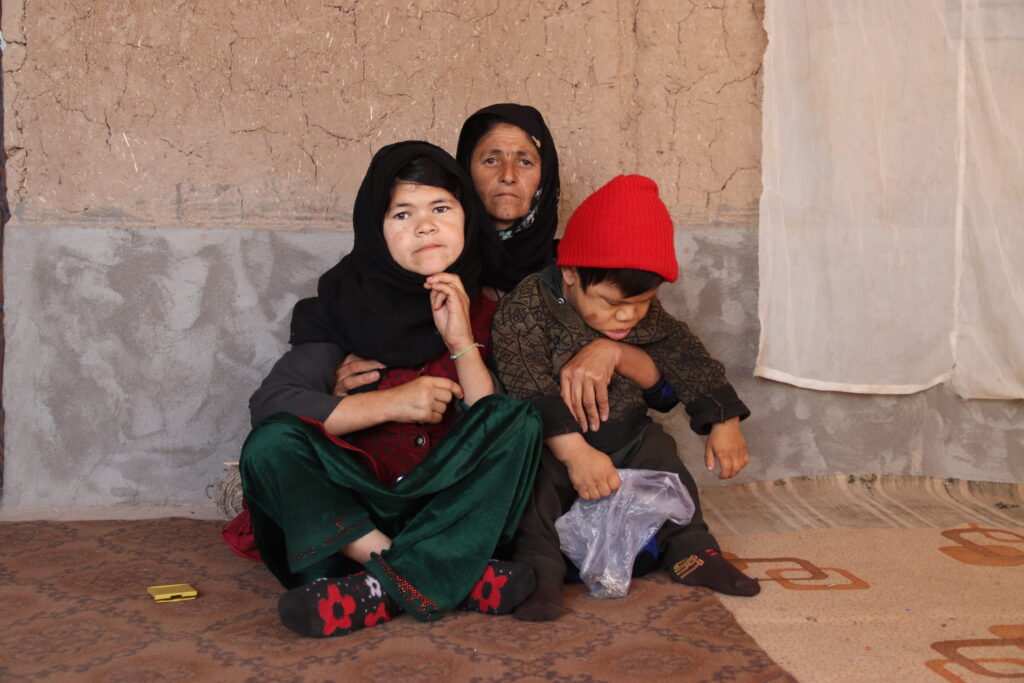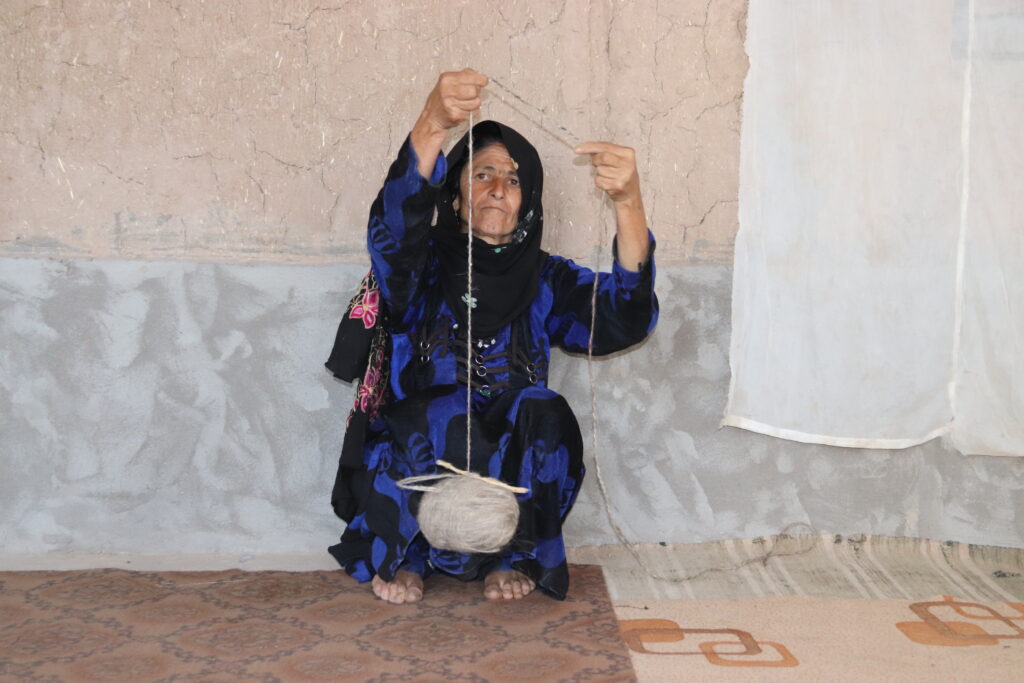The aftermath of war always leaves behind a trail of devastation, both seen and unseen. In Afghanistan, 4 decades of armed conflict have led to mass displacement and half the population is hungry. In addition, mental health has become an unprecedented but seldom discussed crisis in the country, with more than 1 in 2 people thought to be experiencing mental health issues.
At the BHC- Faiz Abad Clinic in Herat province run by Islamic Relief, Golnar*, a 45-year-old mother of 6, sits in the last available seat in the waiting room. She embraces her 9-year-old son, who cannot walk or speak, while her 11-year-old daughter sits beside them. Golnar was living in Faryab province with her husband and 5 children, eagerly awaiting the arrival of her sixth, when everything changed one cold winter’s night.
During the active conflict in Afghanistan, the family’s home was struck by a rocket, killing 2 of the children. Other family members were injured, with the youngest daughter, Abeda, aged 2, suffering head and leg injuries. Golnar herself was left with a severe spinal injury and her unborn baby was also hurt.

As the fighting intensified and her home was ruined, Golnar had to flee with her family, in search of safety. She moved to Herat province, where she found some respite from the conflict and received aid to help her family survive the harsh winter conditions. Golnar’s husband lost the use of his legs during those first, difficult months away from home.
The family eventually settled in Faiz Abad village in Herat’s Pashtun Zarghoon district. Golnar had to start life afresh, which presented many difficulties, including integrating into the community. Golnar’s eldest son, Zalmi, had cerebral palsy, which hindered his ability to communicate effectively and walk independently. Golnar had to stay home to provide constant care and support for Zalmi.
“Life has not been easy for us,” Golnar says. “I had to move from my hometown to a completely new location. My children were unwell, and we had no one to support us. I did not know where to seek help, and I was worried.”
A life-changing diagnosis
Upon arrival at BHC- Faiz Abad Clinic, Golnar reported chronic physical issues from her injury and exhibited symptoms suggestive of Major Depressive Disorder (MDD) and Post-Traumatic Stress Disorder (PTSD), including a depressed mood, mental turmoil, confusion, fear, insomnia, nightmares, flashbacks, negative thoughts, a lack of motivation, and feelings of helplessness. The clinic’s physician subsequently referred Golnar to the psychosocial services of AHF project for further attention.
After a wide and interactive consultation, Golnar was enrolled in individual therapy to identify and address underlying issues contributing to her poor mental health, and to support her to gradually recover. Over 11 counselling sessions, Golnar and her counsellor built a professional relationship centered on trust, empathy, and safety, in which Golnar’s mental state and traumatic experiences were considered. Through integrated solutions and treatments, she benefited from the services provided by Islamic Relief’s psychosocial counselling team.
“My participation in weekly therapy meetings with a counsellor at Islamic Relief played a vital role in my road to recovery. From the day I was admitted, I have always felt loved and cared for. Your reassuring advice and therapy sessions gave me the hope and strength to recollect myself again and [become an important person in my community]. I’ll always be indebted to you,” she says.
Renewed resilience
Golnar recovered and resumed an activity she had done her whole life — spinning sheep’s wool into yarn. She started making yarn and selling it to villagers and local shops, which boosted her family’s income and Golnar’s confidence.
She is now making a decent living from her sales, earning about 3,000 AFN ($40/approx. £32) monthly. She has addressed her past struggles, adapted well to present circumstances, and actively contributed to her family and community.
“I’m very happy now. I have something to do these days. I’m making yarn from wool, which keeps my mind busy, and I do not think about the challenges and problems I have faced before. I can do the household chores and take care of my children. Thank you so much, Islamic Relief, for the therapy sessions.” says Golnar.

Islamic Relief carried out the AHF project, funded by the United Nations Office for the Coordination of Humanitarian Services (UNOCHA) in Herat and Samangan provinces.
Over a year, from January 2023 to December 2023, this initiative made a significant impact on the lives of vulnerable people by providing essential health and counselling services to 29,600 people. The collaboration between Islamic Relief and UNOCHA ensured that the project effectively addressed the needs of local communities and contributed to their wellbeing. In addition to providing assistance in the health sector, Islamic Relief also extends its support to the most marginalised families through projects addressing food security, education, shelter, and livelihoods.
Please help Islamic Relief to continue our life-saving and life-changing work in Afghanistan. Donate now.
*Name has been changed to protect confidentiality










